#Bernard hepton
Explore tagged Tumblr posts
Text








Secret Army - BBC One / BRT - September 7, 1977 - December 15, 1979
War Drama (43 Episodes)
Running Time: 60 minutes
Stars:
Bernard Hepton as Albert Foiret
Jan Francis as Lisa "Yvette" Colbert (series 1-2)
Christopher Neame as Flight Lt. John Curtis (series 1)
Angela Richards as Monique Duchamps
Clifford Rose as Ludwig Kessler
Michael Culver as Maj. Erwin Brandt (series 1-2)
Juliet Hammond-Hill as Natalie Chantrens
Valentine Dyall as Dr Pascal Keldermans
Ron Pember as Alain Muny
Eileen Page as Andrée Foiret (series 1)
Robin Langford as Cpl. Veit Rennert (series 1-2)
Timothy Morand as Jacques Bol (series 1)
James Bree as Gaston Colbert (series 1)
Maria Charles as Louise Colbert (series 1)
Gunnar Möller as Hans van Broecken
Marianne Stone as Lena van Broecken (series 1-2)
Henrietta Baynes as Yvonne (series 1-2)
Stephen Yardley as Max Brocard (series 2)
John D. Collins as Insp. Paul Delon (series 2-3)
Hazel McBride as Madeleine Duclos (series 2-3)
Nigel Williams as François (series 2)
Paul Shelley as Maj. Nick Bradley (series 2-3)
Neil Daglish as Wullner (series 2-3)
Trisha Clarke as Geneviève (series 2-3)
David Neilson as Jelinek (series 3)
Terrence Hardiman as Maj. Hans-Dietrich Reinhardt (series 3)
Michael Byrne (series 2) and Ralph Bates (series 3) as Paul Vercors
Stephan Chase as Capt. Stephen Durnford (series 3)
Hilary Minster as Hauptmann Müller (series 3)
#Secret Army#TV#BBC One#BRT#War Drama#1970's#Bernard Hepton#Jan Francis#Christopher Neame#Angela Richards#Christopher Rose#Michael Culver#Juliet Hammond-Hill
10 notes
·
View notes
Photo

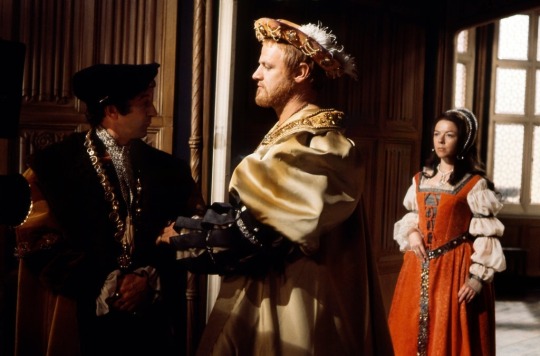

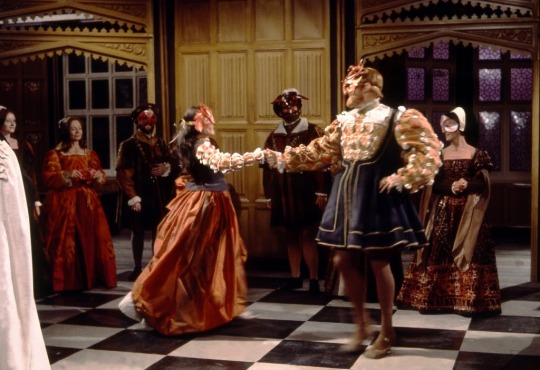
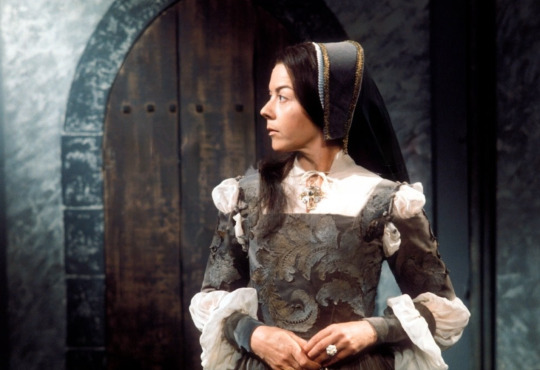

Dorothy Tutin as Anne Boleyn in The Six Wives of Henry VIII (1970)
edited by me; apologies for any remaining artifacts! I’ve tried to get rid of them all but it’s still somewhat visible in the first picture
First two pics are from episode 1 (”Catherine of Aragon”, written by Rosemary Anne Sisson); the rest are from episode 2 (”Anne Boleyn”, written by Nick Mccarty). Henry VIII was played by Keith Michell, Eustace Chapuys (in the second picture) by Edward Atienza, and Thomas Cranmer (in the last picture) by Bernard Hepton.
#tudor era#anne boleyn#dorothy tutin#the six wives of henry viii#henry viii#keith michell#eustace chapuys#edward atienza#thomas cranmer#bernard hepton#love this anne depiction so much#so lucky to have found this trove of pics a few days ago#dm me if you want access to the collection
53 notes
·
View notes
Text
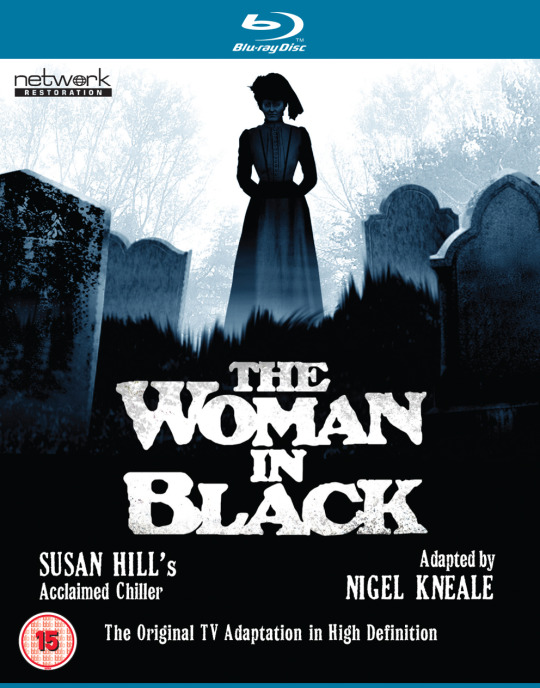
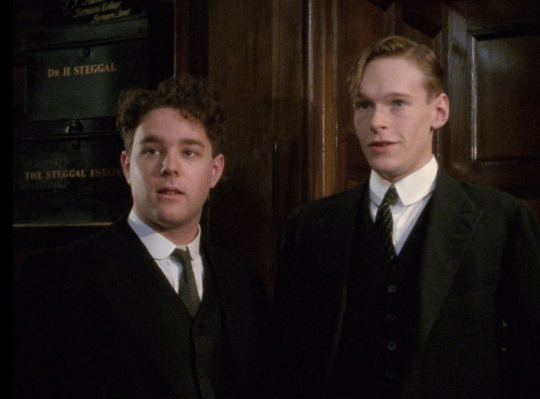
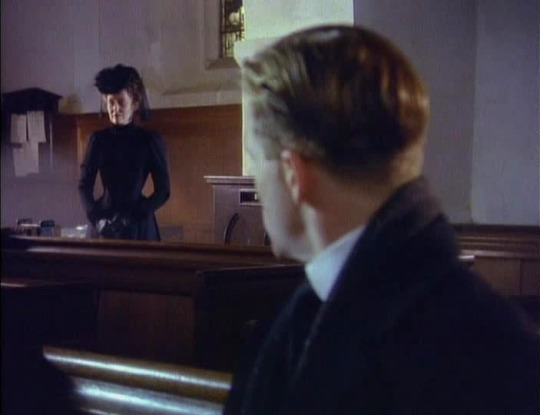
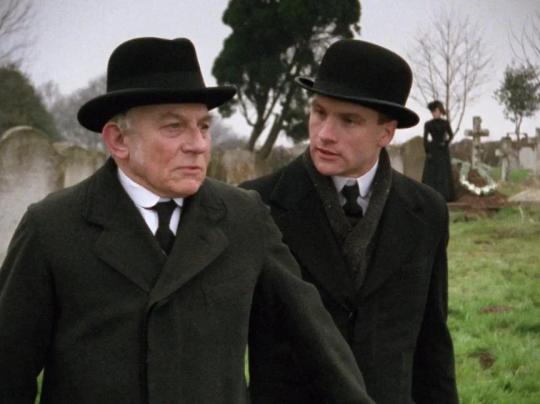
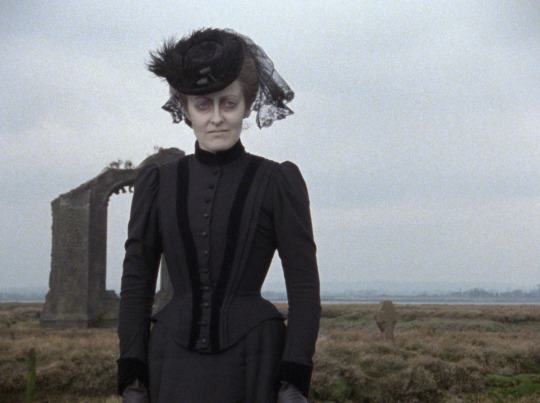


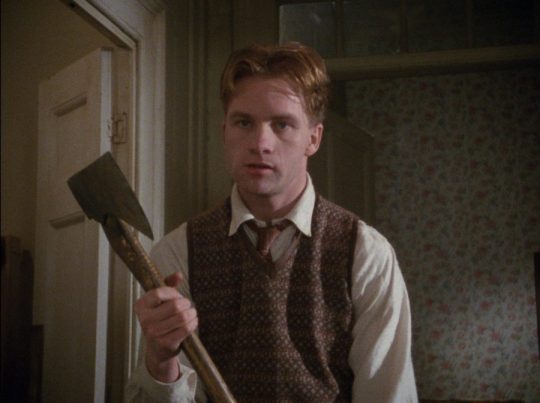
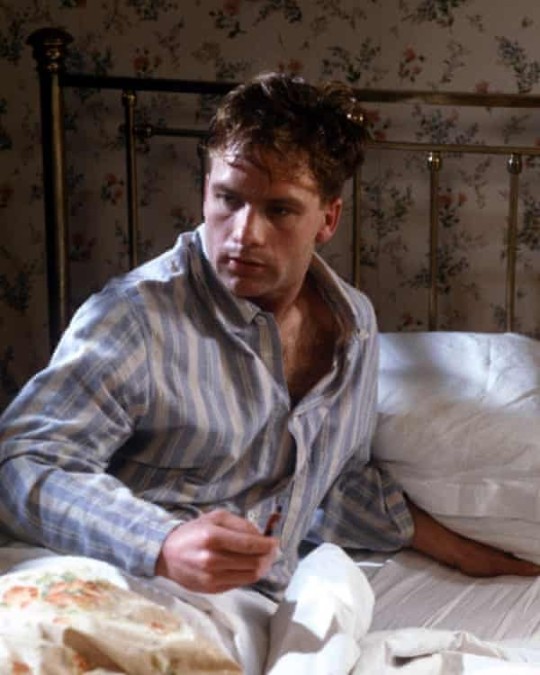
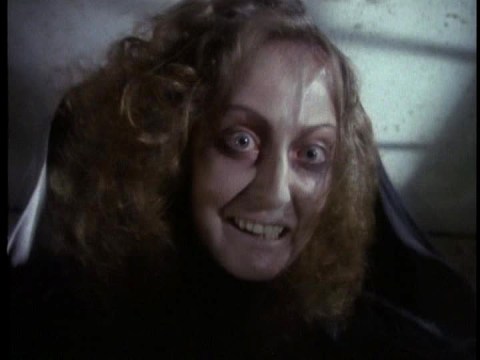
THE WOMAN IN BLACK
UK
1989
Directed by Herbert Wise
Screenplay by Nigel Kneale
#cult horror#british horror#supernatural#ghosts#eighties#susan hill#herbert wise#nigel kneale#adrian rawlins#bernard hepton#the woman in black
20 notes
·
View notes
Text
"BLEAK HOUSE" (1985) Review
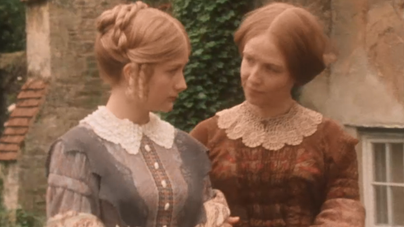
"BLEAK HOUSE" (1985) Review
In less than I year, I have developed this fascination with the works of Charles Dickens. How did this come about? I do not know. I have seen previous Dickens movie and television adaptations in the past. But ever since last year, I have been viewing these adaptations with a vengeance. And one of them turned out to be "BLEAK HOUSE", the 1985 adaptation of Dickens' 1852-53 novel.
Adapted by Arthur Hopcraft, this eight-episode miniseries conveyed the affects of Jarndyce v Jardyce, a long-running legal probate case involving the existence of more than one will. The heirs and their descendants have been waiting decades for the court to determine the legal will, for the sake of a large inheritance. Among those affected by the Jarndyce v Jardyce case are:
*John Jarndyce - a wealthy English landowner, who happens to be the proprietor of the estate, Bleak House. Jarndyce had inherited it from his uncle Tom Jarndyce, who had went mad waiting for a verdict on the case before committing suicide. *Richard Carstones - Tom Jarndyce's grandson and John Jarndyce's cousin, who also became one of the latter's legal wards, and a potential beneficiary of the Jarndyce v Jardyce case. *Ada Clare - Tom Jarndyce's granddaughter and Mr. Jarndyce's cousin, who also became one of his legal wards, and a potential beneficiary of the Jarndyce v Jardyce case. She and Richard, also cousins, became romantically involved. *Esther Summerson - one of the novel's main characters and orphan, who became Mr. Jarndyce's ward following the death of her previous guardian, Miss Barbury, who had also been her biological aunt. She joined the Bleak House household as Ada's companion and Mr. Jarndyce's housekeeper after he became the guardian of Richard and Ada. *Honoria, Lady Dedlock - the wife of baronet Sir Leicester Dedlock and a beneficiary of the Jarndyce v Jardyce case. She is also the younger sister of Miss Barbury and Esther's illegitimate mother. *Captain John Hawdon aka Nemo - a former British Army officer, who became an impoverished law writer and drug addict. He is also Lady Dedlock's former lover and Esther's illegitimate father. His penmanship on one of the Jarndyce v Jardyce affidavit attracts Lady Dedlock's attention. *Mr. Bill Tulkinghorn - Sir Leicester's ruthless lawyer, who noticed Lady Dedlock's reaction to the affidavit. This leads him to investigate her past and possible connection to Hawdon aka "Nemo". *Miss Flite - An elderly woman living in London, whose family had been destroyed by a long-running Chancery case similar to Jarndyce v Jarndyce. This has led her to develop an obsessive fascination with Chancery cases, especially the main one featured in this story. She quickly befriended Esther, Richard, Ada and Mr. Jarndyce.
As one can see, these characters represented plot arcs that connect to the Jarndyce v Jarndyce case. As one of the beneficiaries of the Jarndyce case, Richard becomes obsessed with the verdict. He seemed more interested in depending upon the Jarndyce verdict to provide him with an income rather than pursue a profession. This obsession eventually led to a clash between and Mr. Jarndyce, who has tried to warn him not to get involved with the case. Another clash formed between Lady Dedlock and Mr. Tulkinghorn, due to his determination to find proof of her past with Nemo and the conception of their child. A clash that proved to create even more damaging for a good number of people, than the one between Mr. Jarndyce and Richard. In the midst of all this stood Esther, who served as an emotional blanket for several characters - especially the inhabitants at Bleak House, a potential romantic figure for three men (ironic for a woman who was not supposed to be a great beauty), and the center of the Lady Dedlock-Nemo scandal.
For years, 1985's "BLEAK HOUSE" had been viewed as the superior adaptation of Dickens' novel. The first novel aired back in 1959. But a third television adaptation that aired in 2005 had managed to overshadow this second adaptation's reputation. But this is not about comparing the three adaptations. I am focusing only the 1985 miniseries. If I might be blunt, I believe screenwriter Arthur Hopcraft and director Ross Devenish created one of the better Charles Dickens I have personally seen. Granted, one might use the source material - the 1952-53 novel - as the reason behind the miniseries' top quality. But I have seen my share of poor adaptations of excellent source material . . . and excellent adaptations of poor or mediocre novels and plays. And I would find this excuse too simply to swallow. Hopcraft and Devenish could have easily created a poor or mediocre adaptation of the novel. Fortunately, I believe they had managed to avoid the latter.
With eight episodes, Hopcraft and Devenish did an excellent job in conveying Dickens' exploration into the chaos of the legal landscape in 19th century Britain, especially cases involving the Chancery courts. One might consider the longevity of Jarndyce v Jarndyce rather exaggerated. However, I speak from personal experience that an extended length of time in such a case is more than possible. But what I thought the effect of Jarndyce v Jarndyce and similar cases in Dickens' story seemed very interesting. In Richard Carstone's case, I suspect his own hubris and upbringing had allowed the case to have such a toxic effect upon him. He had been raised as a gentleman. Which meant he was not expected to work for a living. But since he did not possess a fortune or an estate - like Mr. Jarndyce - Richard never lost hope that the court would rule the Jarndyce v Jarndyce case in his favor, allowing him to inherit a great deal of money. Although it took another case to send Miss Flyte mentally around the bend, I found it interesting that her obsession with Chancery cases led her to attach her interest to the Jarndyce case beneficiaries.
The Jarndyce case also produce a group of leeches in the forms of attorneys like Mr. Tulkinghorn and his obsession with assuming control over the Dedlocks and Mr. Vholes, who had sucked a great deal of money from Richard in exchange for his legal services. The series also featured the vicious moneylender Mr. Smallweed, who helped Mr. Tulkinghorn in the latter's campaign against Lady Dedlock; and Mr. Jarndyce's "friend", Harold Skimpole, who had not only encouraged Richard to pursue a greater interest in the Jarndyce case, but also had accepted a "commission" from Vholes to recruit the young man as a client. Would I regard William Guppy as a leech? Sometimes. I had noticed that one particular story arc was missing - namely the story arc regarding the philanthropist Mrs. Jellyby, her daughter and Esther's friend, Caddy and the Turveydrop family. This did not bother me, for I have never been a fan of that particular arc.
However, I also noticed that "BLEAK HOUSE" featured a few moments in which important plot points had been revealed through dialogue or shown after the fact. Audiences never saw Skimpole convince Richard to hire Mr. Vholes. Instead, Mr. Jarndyce had revealed this incident after it happened. The whole scenario regarding Dr. Allan Woodcock being a survivor of a shipwreck was handled as a past event revealed by the good doctor himself. Hopcraft's script never stretched it out in the same manner as Dickens' novel or the 2005 miniseries. Audiences never saw George Rouncewell's release from jail, for which he had been incarcerated for murder. Instead, Episode Seven began with George in jail and later, near the end, found him serving as Sir Leicester's valet without any information on how that came about.
"BLEAK HOUSE" featured a few other writing and direction decisions by Hopcraft and Devenish that I found . . . well, questionable. Why did the pair solely focused on Lady Dedlock in the series' penultimate episode and Richard and the Jarndyce v Jarndyce case in the final one? Would it have been so difficult for them to switch back and forth between the two arcs in those final episodes? I found Inspector Bucket's resolution to the story's murder mystery rather rushed. I would have liked to see Bucket eliminate suspects before solving the case. In Bucket's final scene with the killer, Hopcraft left out that moment from the novel when the latter had the last scathing word on British society, leaving the police detective speechless. This erasure dimmed the impact of Dickens' message and made the killer even more of a caricature. I had some issues with how Devenish directed certain performances. How can I put this? I found them a bit theatrical.
I have one last issue - namely Kenneth MacMillan's cinematography. I realize that in "BLEAK HOUSE", fog represented institutional oppression and human confusion and misery in society. Unfortunately, I feel that MacMillan may have been heavy-handed in utilizing this symbol in the series. It is bad enough that photography featured a fuzzy element that seemed popular in many period productions in the 1970s. But thanks to MacMillan's use of fog in the story, there were many moment in which I could barely see a damn thing. And I found that irritating.
Aside from a few quibbles, I had no real issues with the performances featured in "BLEAK HOUSE". One of those quibbles proved to be the performances for some of the secondary cast members. How can I say this? The exaggerated and wooden performances for some of the cast members brought back memories of some of the minor actors' bad performances in 1982 miniseries, "THE BLUE AND THE GRAY". I must admit that I did not care for Pamela Merrick's portrayal of Lady Dedlock's French maid, Madame Hortense. Her performance bordered and then surpassed the lines of caricature - as some British actors/actresses tend to do. Charlie Drake's portrayal of the moneylender Smallweed tend to waver between a pretty solid performance and pure caricature. Although there were moments when I found her portrayal of the eccentric Miss Flyte a bit hammy, I must admit that Sylvia Coleridge gave a well-done performance. Chris Pitt's performance as Jo, the crossing sweeper boy struck me as very poignant. Yet, at the same time, he seemed so passive that at times, I found it difficult to believe he had survived on the streets on his own, for so long. Jonathan Moore, whom I had remembered from the 1988 television movie, "JACK THE RIPPER"; did an excellent job of conveying the ambitious and self-interested nature of law clerk William Guppy. However, his portrayal of Guppy seemed to lack the character's comedic nature. Denholm Elliot gave a very interesting performance as Esther, Richard and Ada's guardian, John Jarndyce. On one level, I found his portrayal of the kind-hearted Mr. Jarndyce as first-rate. Excellent. But there were moments, including the character's famous quote following Jo's death, when Elliott's Mr. Jarndyce seemed to resemble one of those "angry young men" characters from a John Osbourne play. I found those moments very odd.
However, there were performances that did not leave me scratching my head. Colin Jeavons and Anne Reid gave very competent performances as the grasping solicitor Mr. Vholes and George Rouncewell's close friend Mrs. Bagnet, respectively. Ironically, Jeavons had portrayed Richard Carstone in the 1959 adaptation of "Bleak House" and Reid had portrayed Mrs. Rouncewell in the 2005 television adaptation. Both Suzanne Burden and Lucy Hornak gave solid performances as Esther Summerson and Ada Clare. And yet, both actresses managed to rise to the occasion with some brilliant moments. Burden's moment came, following Esther's realization that she had survived the smallpox. As for Hornak, she gave an excellent performance during Ada's soliloquy about her love's growing obsession with the Jarndyce case. Brian Deacon gave a passionate performance as Dr. Allan Woodcourt, the penniless doctor in love with Esther. Ian Hogg gave a very solid, yet commanding performance as Inspector Bucket. I really enjoyed Sam Kelly's warm portrayal of the law-stationer, Mr. Snagsby. Bernard Hepton gave one of the most colorful performances of his career as the alcoholic rag and bone shopkeeper, Krook. Dave King gave a very solid performance as the loyal, yet intimidating and conservative former Army sergeant George Rouncewell. I found George Sewell's performance as Sergeant Rouncewell's older brother, the wealthy Mr. Rouncewell not only entertaining, but very memorable. I thought Robin Bailey did an excellent job portrayed the haughty and proud Sir Leicester Dedlock.
But there were four performances that really impressed me. One came from Philip Franks, who did an excellent job of conveying Richard Carstone's emotional journey from John Jarndyce's warm and friendly young man, to the more embittered one, obsessed with the Jarndyce case. T.P. McKenna gave a delicious performance as Mr. Jarndyce's self-involved friend, Harold Skimpole, who proved to be quite the emotional (and financial) vampire. I thought Peter Vaughan was superb as the Dedlocks' sinister lawyer, Mr. Tulkinghorn. I was amazed by how Vaughn managed to combine the character's dedication to protecting his client Sir Leicester and his penchant for assuming control over others. If I had voted for the best performance featured in "BLEAK HOUSE", I would choose Diana Rigg's portrayal of the tragic Honoria, Lady Dedlock. I believe the actress gave a brilliant performance as the mysterious, yet complicated baronet's wife, whose cool demeanor hid a great deal of emotions and a personal secret. I am shocked and amazed that neither she, Vaughn, McKenna or Franks had ever received any accolades for their performances.
In fact, I am surprised that "BLEAK HOUSE" had only received BAFTA nominations (and won three) . . . and they were in the technical/arts category, aside for the Best Drama Series/Serial. No Primetime Emmy nominations, whatsoever. Was this eight-part miniseries the best adaptation of Charles Dickens' 1852-53 novel? I cannot answer that question. Granted, it had its flaws. But what television or movie production did not? But I cannot deny that "BLEAK HOUSE" was a first-rate miniseries that deserved more accolades than it had received, thanks to Arthur Hopcraft's screenplay, Ross Devenish's direction and an excellent cast led by Suzanne Burden, Denholm Elliott and Diana Rigg.
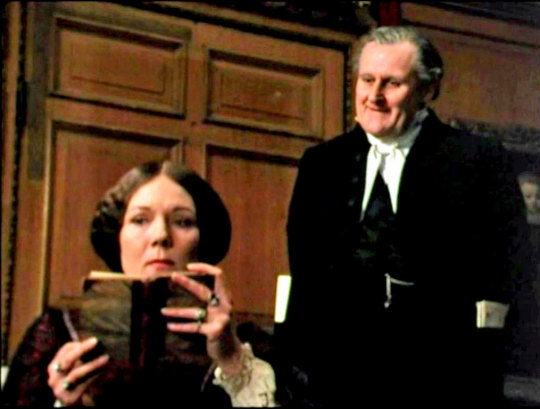
#charles dickens#bleak house#bleak house 1985#arthur hopcraft#ross devenish#suzanne burden#denholm elliott#diana rigg#peter vaughan#philip franks#lucy hornak#colin jeavons#anne reid#dave king#george sewell#robin bailey#brian deacon#chris pitt#sam kelly#ian hogg#jarndyce v. jarndyce#jonathan moore#pamela merrick#sylvia coleridge#charlie drake#bernard hepton#t.p. mckenna#victorian age#period drama#period dramas
4 notes
·
View notes
Text
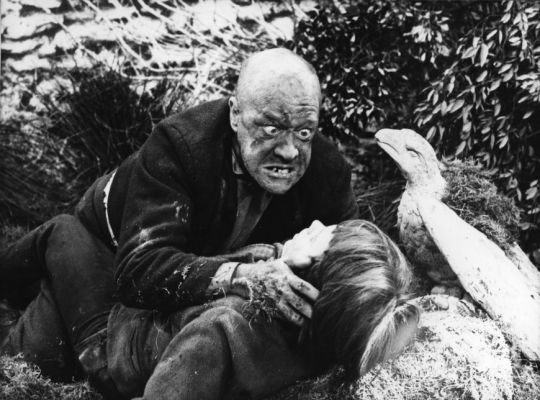
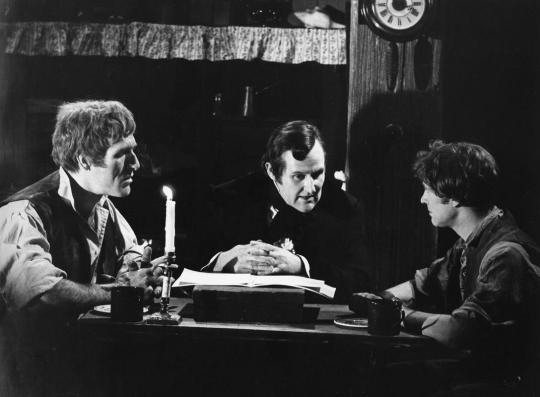





Great Expectations (BBC, 1967)
"Do you remember how you once came out of the house and put meat and drink down on the doorstep for me and then turned on your heel as if I were a beggar?"
"No, I don't recall it."
"But you must, don't you remember how I cried and how pleased you were?"
"No."
"But surely you must remem-"
"Pip! You must know that I have no heart, if that has anything to do with my memory."
"I don't believe that."
"Oh, I have a heart to be stabbed at or to be shot at, I have no doubt. And of course, if it ceased to beat, I should cease to be. But you know what I mean. I have no softness there, no sympathy, sentiment, nonsense. If we are to be thrown much together, you had better believe that at once."
#great expectations#classic tv#charles dickens#bbc#1967#hugh leonard#alan bridges#gary bond#francesca annis#peter vaughan#richard o'sullivan#maxine audley#hannah gordon#neil mccarthy#bernard hepton#ronald lacey#john tate#shirley cain#christopher guard#kevin stoney#jon laurimore#i didn't hate the beebs recent GE adaptation like some reviewers but it did depart quite dramatically from the text in places; this earlier#version is notable in its faithfulness and its thoroughness‚ achieving in less screentime than the 2023 one a near complete telling of the#tale (even including the oft removed Orlick subplot). also notable is that this uses Dickens' originally planned ending for the novel which#he rewrote at the suggestion of his friend E Bulwer Lytton. it's a very good version‚ and very well cast‚ of a story that lives and dies on#its casting. Bond is a very good Pip‚ Vaughan a wonderfully complex coldly amoral Jaggers‚ Audley an imperious but tragic Havisham.#a dark and moody take on Dickens most gothic novel‚ even the opening credits play over a shot of a hanged man on a desolate coast‚ but it#maintains the basic sense of hope in human nature and in the ability of ppl to reform and mature‚ which is to be found in the novel#mccarthy may now actually be the mental image i carry of good kind Joe Gargery and hepton is a delight as Wemmick. highly recommended to#fans of old tv or Dickens or both or even neither... i enjoyed this a lot‚more even than i expected‚ and it's as good a version to be found
4 notes
·
View notes
Text
Inspired by @kajaono's post the other day about Victoria Hamilton, JLM and Austen adaptations, have a list of the actors that have been in at least 2 Austen adaptations:
Hat trickers:
Victoria Hamilton played Henrietta Musgrove in Persuasion (1995), Julia Bertram in Mansfield Park (1999), and Mrs. Foster in Pride and Prejudice (1995)
Johnny Lee Miller played one of Fanny's brothers in Mansfield Park (1983), Edmund Bertram in Mansfield Park (1999), and Mr. Knightley in Emma (2009).
Doubles:
Joanna David played Elinor Dashwood in Sense and Sensibility 1972; she also played Mrs. Gardiner in Pride and Prejudice (1995)
Samantha Bond played Maria Bertram in Mansfield Park (1983); she later on played Mrs. Weston in Emma (ITV, 1996)
Bernard Hepton played Sir Thomas Bertram in Mansfield Park (1983); he later on played Mr. Woodhouse in Emma (ITV, 1996)
Sylvestra Latouzel played Fanny Price in Mansfield Park (1983); she later on played Mrs. Allen in Northanger Abbey (2007)
Nicholas Farrell played Edmund Bertram in Mansfield Park (1983); he later on played Mr. Musgrove in Persuasion (2007)
Irene Richard played Charlotte Lucas in Pride and Prejudice (1980); she then played Elinor Dashwood in Sense and Sensibility (1981)
Robert Hardy played General Tilney in Northanger Abbey (1987); he later on played Sir John Middleton in Sense and Sensibility (1995)
Sophie Thompson played Mary Musgrove in Persuasion (1995), and then the following year she played Miss Bates in Emma (Miramax, 1996)
Kate Beckinsale played Emma Woodhouse in Emma (1996); later on she played Lady Susan in Love and Friendship (2016)
Blake Ritson played Edmund Bertram in Mansfield Park (2007) and later on Mr. Elton in Emma (2009)
Jemma Redgrave played Lady Bertram in Mansfield Park (2007); she later on played Mrs. DeCourcy in Love and Friendship (2016)
Lucy Robinson played Mrs. Hurst in Pride and Prejudice (1995); the following year she played Mrs. Elton in Emma (ITV, 1996)
Carey Mulligan played Kitty Bennet in Pride & Prejudice (2005) and then Isabella Thorpe in Northanger Abbey (2007)
Lucy Briers played Mary Bennet in Pride and Prejudice (1995); she also played a minor role as Mrs. Reynolds in Emma (2020)
If we include Austen-adjacent pieces:
Hat tricks:
Hugh Bonneville played Mr. Rushworth in Mansfield Park (1999) and later on played Rev. Brook Bridges in Miss Austen Regrets (2007) and then Mr. Bennet in Lost in Austen (2008)
Doubles:
Olivia Williams played Jane Fairfax in Emma (ITV, 1996); she later on played Jane Austen in Miss Austen Regrets (2007)
Also, Greta Scacchi played Mrs. Weston in Emma (Miramax, 1996) and went on to play Cassandra Austen in Miss Austen Regrets (2007)
Guy Henry played John Knightley in Emma (ITV, 1996), and later on played Mr. Collins in Lost in Austen (2008)
Christina Cole played Caroline Bingley in Lost in Austen (2008) and then Mrs. Elton in Emma (2009)
Anna Maxwell Martin played Cassandra Austen in Becoming Jane (2009), and then went on to play Elizabeth Bennet in Death Comes to Pemberley (2014)
JJ Feild played Mr. Tilney in Northanger Abbey (2007) and later on played Mr. Nobley in Austenland (2014)
If we include radiodramas/radioplays:
Hat tricks:
Blake Ritson gets it as he played Colonel Brandon in the 2010 S&S radio drama
Doubles:
Amanda Root played Anne Elliot in Persuasion (1995); she also played Fanny Price in the 1997 radio drama for Mansfield Park
Felicity Jones also played Fanny in the 2003 radio drama for Mansfield Park, and later on played Catherine Morland in Northanger Abbey (2007)
Robert Glenister played Captain Harville in Persuasion (1995); he also played Edmund Bertram in the 1997 radio drama for Mansfield Park
Amanda Hale played Mary Musgrove in Persuasion (2007) and later on Elinor Dashwood in the 2010 radio drama for Sense and Sensibility.
David Bamber played Mr. Collins in Pride and Prejudice (1995); he later on played Mr. Elton in the 2000 radio drama for Emma
Robert Bathurst played Mr. Knightley in the same adaptation of Emma; later on he played Mr. Weston in Emma (2009)
Also in that adaptation, Tom Hollander played Frank Churchill; he later on played Mr. Collins in Pride & Prejudice (2005)
Juliet Stevenson played Anne Elliot in the 1986 radio drama for Persuasion; later on she played Mrs. Elton in Emma (Miramax, 1996)
And I'm very likely still forgetting someone.
61 notes
·
View notes
Text
CATWEAZLE (1970)
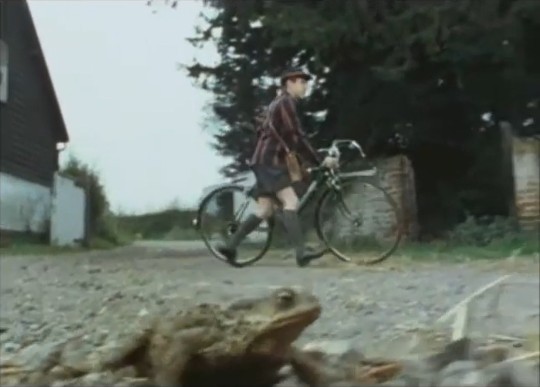
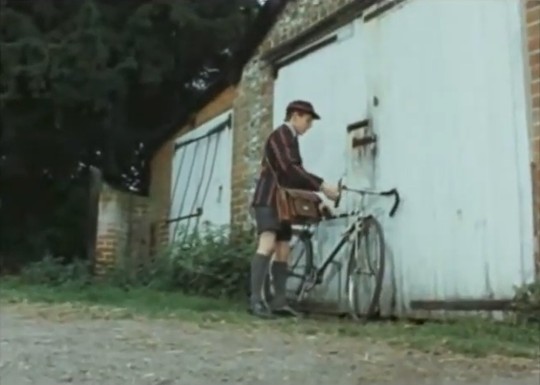
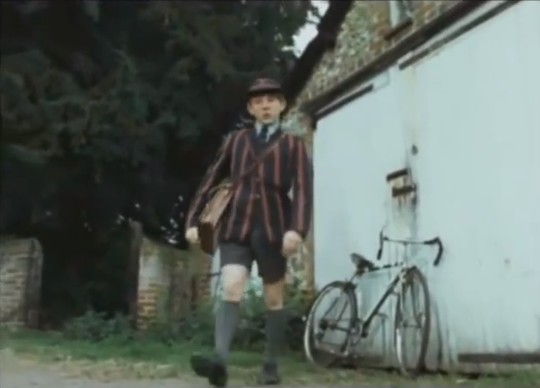
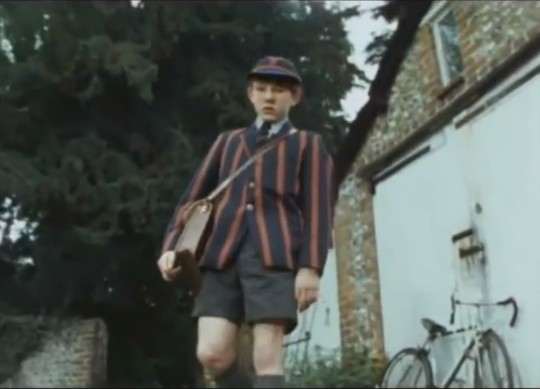
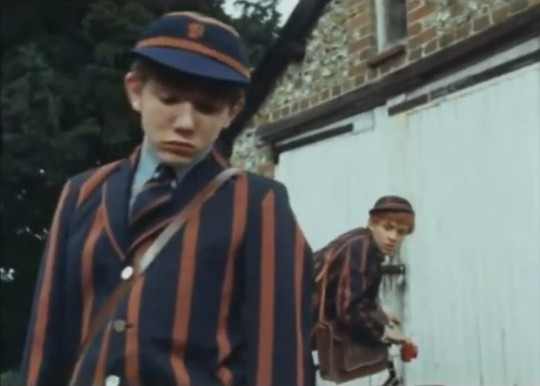
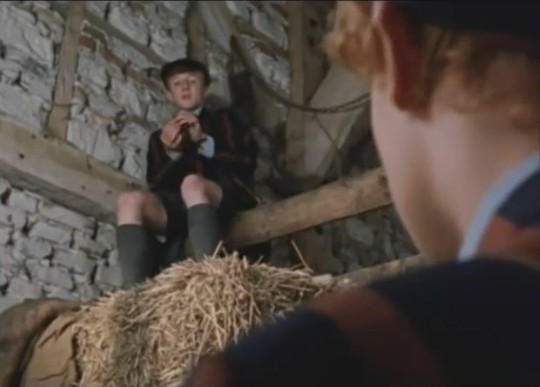
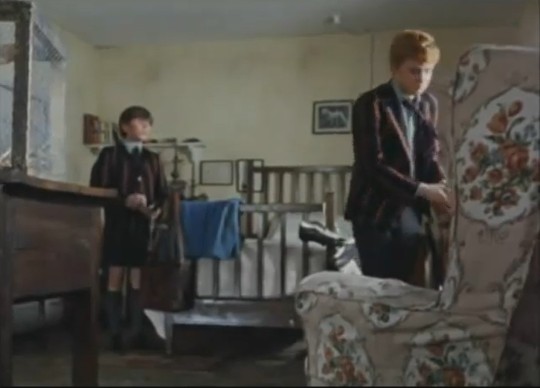
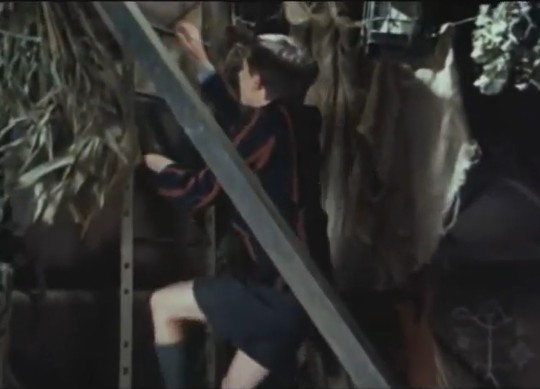
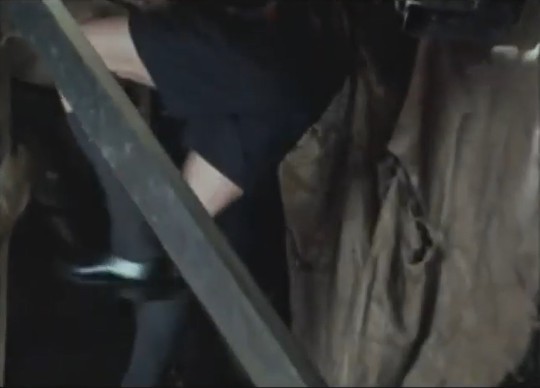
Catweazle was a popular British children’s TV series of the early 1970s. He’s an 11th century bumbling wizard who, when pursued by soldiers through a wood, says a spell as he jumps into a pond. When he emerges, he believes he’s made the soldiers and the wood disappear; in fact he has jumped 900 years into the future. He arrives on a farm in rural England in the year 1969 and befriends a farmer's son, a ginger teenager named Edward Bennet, nicknamed Carrot, who spends most of the rest of the series attempting to hide the wizard from his father and the farmhand Sam. Catweazle searches for a way to return to his own time while hiding in a disused water tower. Whenever he is spotted, he uses his magic amulet to hypnotise people into forgetting that they saw him. He also has a toad called Touchwood (who’s featured in the screenshots above).
There was a second series shown in 1971 in which Catweazle has moved to a stately home, where he befriends the son of the unhinged gentry family living there. Frankly, series one is much better and more fondly remembered (especially by me—I loved this show as a boy!). A third series was planned but never came to fruition.
These screenshots are taken from Series 1, Episode 12—The Wisdom of Solomon. A housekeeper called Mrs Skinner has moved into the farm along with her obnoxious son Arthur. He and Carrot do not get along. This is the only episode to feature school uniforms, so it’s good to see one of the characters is wearing grey short trousers. Carrot is supposed to be around 14, so I think Arthur is meant to be younger, say 12/13. It’s a contemporary production, so the uniforms (complete with school caps!) are authentic for the period, and boys didn’t generally continue wearing shorts to school much past 12 (in state schools anyway—although I stand to be corrected). Did you spot that Arthur’s shorts are fully lined?
In reality, Robin Davies who played Carrot was 15 at the time of filming. Feddy Foote, meanwhile, who played Arthur, was actually older than him at 16 years old. Both boys would still have been at school when the episode was shot, so I wonder how young Freddy reacted when he first saw his costume—or what the other boys at his school thought when it was transmitted?
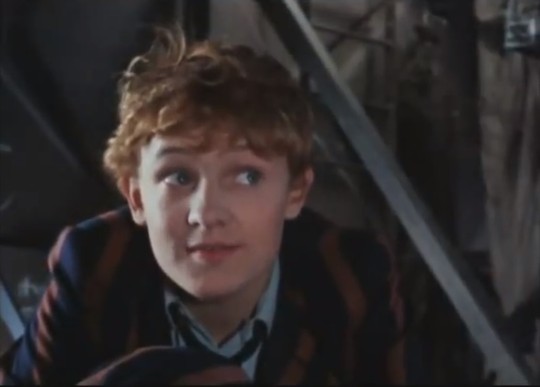
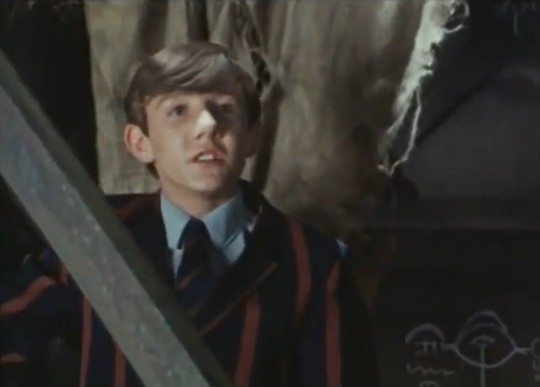
Catweazle was played by Geoffrey Bayldon, who enjoyed a substantial TV, film and stage career. The series featured a host of famous faces, such as Patricia Hayes, Peter Sallis, John Junkin, Peter Butterworth, Hattie Jacques, Neil McCarthy, Moray Watson, Bernard Hepton… It’s a veritable who’s who of popular British actors and comedy talent of the time. You can find most of the episodes on YouTube but I’ve included a link to the one with the two boys in their uniforms below.
Master Davies will be returning to this blog wearing a different school uniform (still with a cap though!) and with a short-trousered younger brother in tow in And Mother Makes Three. As a final note, he died his hair for Catweazle, so that his character could better live up to his nickname.
youtube
53 notes
·
View notes
Text








Bleak House (1985), episode 4
Dir. Ross Devenish. Suzanne Burden as Esther Summerson, Denholm Eliott as John Jarndyce, Diana Rigg as Lady Dedlock, Sam Kelly as Mr. Snagsby, Johnathon Moore as Mr. Guppy, and Bernard Hepton as Krook
#bleak house#bleak house 1985#charles dickens#masterpiece theater#period drama#period film#victorian aesthetic#victoriana#19th century aesthetic#classic literature aesthetic#classic literature#suzanne burden#screen caps#edwardian-screen-caps-next-door#dark academia#vintage academia#antique academia#dark academia aesthetic#victorian academia
1 note
·
View note
Text
Terrence Hardiman - The Demon Headmaster
Growing up as a child, I remember watching a BBC series called “Secret Army” and I remember three actors vividly from that series, Bernard Hepton (as Albert Foiret) and the formidably scary Clifford Rose (as Ludwig Kessler), who both starred in all three series, but in the third series the viewers were introduced to Major Hans-Dietrich Reinhardt played by the late great Terrence Hardiman, who…

View On WordPress
0 notes
Text



Secret Army. Repeats continue tonight on Talking Pictures TV. Great show with plenty of recognisable faces from UK television and one of the most chilling bad guys of 70's TV in Clifford Rose's portrayal of Kessler. Still stands up after all these years.
It unwittingly spawned the parody sitcom 'Allo 'Allo! that ran for 9 series. I understand many of the cast and crew of Secret Army were less than impressed with the manner in which the sitcom, also made by the BBC, mocked the series that inspired it.
#secret army#tptv#clifford rose#jan francis#bernard hepton#michael culver#tv#allo allo#classic uk tv
14 notes
·
View notes
Text



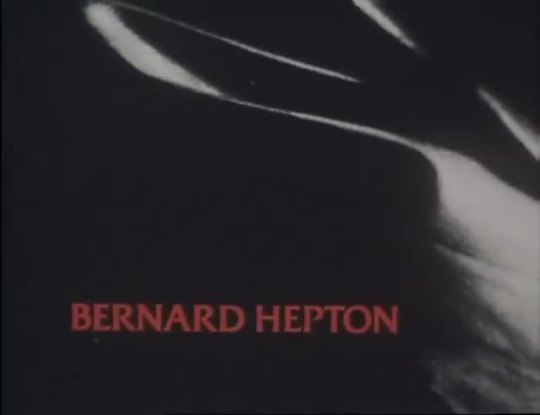






Kessler - BBC One - November 13, 1981 - December 18, 1981
Drama (6 Episodes)
Running Time: 60 minutes
Stars:
Clifford Rose as Ludwig Kessler
Alan Dobie as Richard Bauer
Nitza Saul as Mical Rak
Alison Glennie as Ingrid Dorf
Nicholas Young as Franz Hoss
Ralph Michael as Colonel Hans Ruckert
Bernard Hepton as Albert Foiret
Angela Richards as Monique Durnford
Juliet Hammond-Hill as Natalie Chantrens
Guy Rolfe as Don Julian Yqueras
Oscar Quitak as Josef Mengele
Jerome Willis as Hugo van Eyck
John Moreno as Jose Garriga
Robert Morris as Karl Leider
Jeremy Wilkin as Gidney
Harold Innocent as Deakin
Royston Tickner as Maurer
John Dearth as Graun
Ishia Bennison as Ruth Liberman
Robert Eddison as Heinrich Himmler
Gareth Milne as Muller
#Kessler#TV#BBC One#Drama#1981#1980's#Clifford Rose#Alan Dobie#Nitza Saul#Alison Glennie#Bernard Hepton#Nicholas Young
1 note
·
View note
Text








Colditz - S02E07 - French Leave
#anthony valentine#major mohn#bernard hepton#colditz tv#S02E07#french leave#screencaps#screengrabs#my edits.
10 notes
·
View notes
Photo

Bad movie I have The Holcroft Covenant 1985
#The Holcroft Covenant#Thorn EMI Screen Entertainment#Michael Caine#Anthony Andrews#Victoria Tennant#Lilli Palmer#Mario Adorf#Michael Lonsdale#Bernard Hepton#Richard Münch#Carl Rigg#André Penvern#Andy Bradford#Shane Rimmer#Alexander Kerst#Michael Wolf#Hugo Bower#Michael Balfour#Tharita Olivera De Sera#Guntbert Warns#Paul Humpoletz#Tom Deininger#Keith Edwards#Andrea Browne#Shelley Thompson#Eve Polycarpou#Jörg Trees#Tim Condren
4 notes
·
View notes
Photo


Get Carter | Mike Hodges | 1971
Michael Caine, Bernard Hepton
14 notes
·
View notes
Text










The Woman in Black (Central, 1989)
"Do you believe in ghosts?"
"Never have."
"Why not?"
"They were just stories."
"Made up?"
"Yes."
"So, you're a sceptic."
"Well, I - I was, until today."
#the woman in black#classic tv#Single play#nigel kneale#susan hill#Herbert Wise#1989#Central television#Horror TV#Adrian Rawlins#Bernard hepton#Pauline Moran#David daker#David Ryall#Clare Holman#John cater#John Franklyn Robbins#Fiona walker#William Simons#Robin Weaver#Caroline John#Steven Mackintosh#Andy Nyman#Phewy. I've been wanting to see this for years as it's the perfect storm of stuff I love: horror TV nigel Kneale classic TV and Xmas ghost#Stories. Years of poor availability have kept me waiting and I worried I might have built it up too much or expected too much. Well safe to#Report this fully deserves its reputation as a legendary bit of spooky TV. I will NEVER look at gentle Miss Lemon in poirot the same way#Moran is utterly terrifying here with little more than a painted face and an unnervingly still stance. A starry cast of established#Character actors back her up including the perennially perfect Hepton. A flawlessly tight script from Kneale and beautifully shot with#A delicate attention to detail. A last gasp of what I'd consider classic TV and a real prestige production. Everything from sound to cast#To lighting... Beautiful. Horrific. Genuinely frightening. A unique and important piece of TV history.
21 notes
·
View notes
Photo



Ian Richardson as Bill Haydon in "Tinker, Tailor, Soldier, Spy"
#ian richardson#bill haydon#bernard hepton#toby esterhase#tinker tailor soldier spy#john le carre#bbc#such a brilliant series#my gifs
14 notes
·
View notes